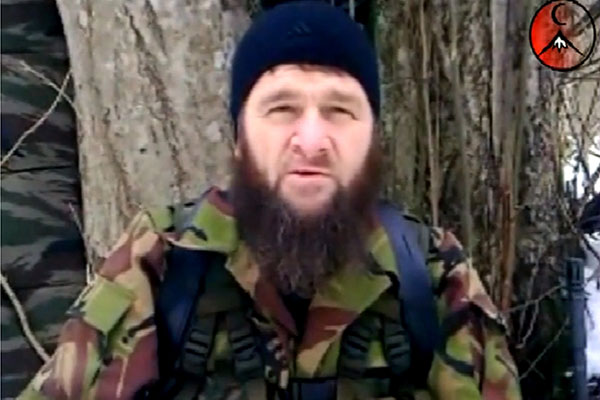
The attack in Ingushetia, Russia, is believed to have been organized by Doku Umarov, a Chechen Islamist leader. (AFP photo/Hunafa.com)
The suicide bombing on August 19 in the North Caucasus republic of Ingushetia in Russia is a tragic reminder of increasing extremist violence in this troubled region.
The suicide bomber targeted participants in the funeral of the police officer killed in a shooting incident the day before. The explosion killed seven police officers and wounded 15 others who came to pay last respects to their fallen comrade. Also, on Saturday evening in the town of Khasavyurt in nearby Dagestan, a masked gunman opened fire in a mosque, killing one as worshipers celebrated the end of Ramadan. This is typical for extremist Salafi attacks on more moderate mosques around the world, including in Pakistan and Afghanistan.
Despite the fact that Russia officially ended its counterterrorism operation in Chechnya, the North Caucasus has been marred by rising violence and risks, turning it into one of the most violent and lawless regions in the world and a hub of international terrorism. As Russia continues to lose effective control of the North Caucasus, extremist groups may start waging an even greater terror campaign inside Russia and beyond, joining forces with Islamist fighters in central Asia and Afghanistan as the latter prepares for the withdrawal of U.S. forces.
Islamist terrorists from the self-proclaimed Caucasus Emirate have already attacked energy infrastructure, trains, planes, theaters, and hospitals. In December 2011, a suicide bomber exploded in Moscow’s Domodedovo international airport, resulting in scores of killed and wounded. The establishment of an Islamic caliphate in the North Caucasus, which is the aim of self-proclaimed emir Doku Umarov, would be a disaster for Russia and the entire region.
However, the Kremlin’s approach to fighting extremism in North Caucasus isn’t working. The multifaceted strategy implementation has been plagued with torture, extra-judicial killings, administrative detentions, and rampant corruption.
During and following the second Chechen War, Russia gave priority to using brutal force to regain control over territory. The Kremlin has also poured billions of dollars to improve the regional economy, but much of the money has been stolen. The Russians have failed so far to develop a population-centric strategy focused on gaining the trust of local populations, including moderate Muslims, and working with them to find a sustainable solution to exclude Salafists.
Destabilization in the North Caucasus also threatens U.S. and allied interests. As we wrote in March, the dangers of further destabilization of the North Caucasus are threefold.
First, the presence of such an ungovernable enclave in southeastern Europe compromises the border stability of U.S. friends and allies such as Georgia and Azerbaijan. Unrest in the North Caucasus increases the security threats to the two countries, where border security is already problematic due to the Georgia–Russia and Azerbaijan–Armenia conflicts.
Second, the North Caucasus poses a global threat as a potential terrorist base in close proximity to U.S. European allies. Some terrorists are already operating in the European Union, as illustrated by the capture of the Jamaat Shariat cell, which was staffed with North Caucasus terrorists in the Czech Republic.
Third, and finally, an emirate in North Caucasus would jeopardize the flow of oil and gas from the region to world markets.
The rise of extremism-fueled violence in the North Caucasus and in central Asia is Russia’s most serious security threat. The recent attacks on the two senior muftis in Tatarstan demonstrate that the violence is spreading and, in the worst case, may endanger Russia’s statehood. The Russian ambitious ongoing military reform and multibillion-dollar rearmament is partly aimed at combating future local conflicts incited by extremists.
There are several things that the U.S. can do to help. The U.S. should encourage cooperation of Georgia and Azerbaijan and help train their enforcement agents and border guards. Washington can encourage Middle Eastern government to stop their nationals from financing international terrorism, and, finally, the U.S. should engage European states in bilateral and multilateral anti-terrorist cooperation and improve NATO-based anti-terrorism cooperation.





























